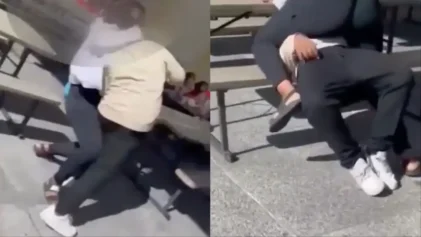Glendale is finally reckoning with a dark part of its history. It is the first city in California and the third in the nation to pass a resolution acknowledging and expressing remorse for its past as a “sundown town.” It was a label given to towns where Black Americans knew they were not welcome once the sun went down.
In response to hundreds of people in the Los Angeles suburb participating in Black Lives Matter protests and demanding action on racial issues, the Glendale City Council unanimously passed a resolution on Sept. 15 apologizing for and denouncing its history as a “sundown town” in a commitment to addressing racial bias in the city.
Glendale’s history of racism dates back many decades. The Los Angeles Times reports the Ku Klux Klan operated in the city in the 1920s, and the American Nazi Party was headquartered in Glendale from the 1960s to the 1970s. Numerous newspaper clippings exist as verified records of a time where Blacks were disregarded in the town.
“It has that legacy and it makes sense to address that head on,” Glendale City Councilman Dan Brotman told NBC Los Angeles this week.
That same legacy extends to thousands of cities in the U.S. where Blacks were cautioned not to be found after dark. The Midwest has a deep connection to the “sundown towns,” with many small settlements whose history has been suppressed and obscured. They are only just starting to recognize and learn about the racism that is pervasive in their past.
During the 1890s to the 1940s, black Americans in the Midwest sundown towns were refused lodging, brutally cast out, and oppressed, which resulted in a lasting homogeneousness that has persisted throughout the years.
The town of Goshen, Indiana had brochures from 1955 that declared “no negro population” and Klan rallies taking place as recently as 1996. Goshen eventually made the decision to pass its own resolution recognizing the town’s history, and is one of only three sundown towns to have done so.
In Pierce City, Missouri, the first Black resident did not graduate from high school until 2003, according to a local historian.
Utica, Ohio, is a town with a conflicted narrative, with the complexity of its racial history making reconciliation all the more difficult. While the area was once a key stop on the Underground Railroad, the 1920s saw the ascendency of the Ku Klux Klan, as they burned crosses and terrorized Black people.
With these stories finally emerging into the public consciousness, it has been difficult for towns to figure out how to act in response. One town successfully passed a city council resolution and it was a document that necessitated 31 drafts.
As a result of their resolution, Glendale’s city council decided to hire an investigator to organize a historic context study to record the racial history of Glendale and examine how racial bias may be an influence in hiring practices, housing and police policies for the future.
Tara Peterson, the head of the coalition for an anti-racist Glendale, told NBC Los Angeles the resolution is a chance for the city to finally accept its troubling history and do better for the future.
“Being able to say, hey we know we were once this way — we’re no longer this way, and this is what we’re going to do moving forward.”
Brotman said that the resolution was emblematic of the city’s dedication to racial justice and equality.
“The resolution does commit us to look at how we conduct affairs in Glendale and look at how racism may be playing a role,” Brotman said.
“It’s extremely empowering and makes a community feel like they can come together and now we can think about healing and reconciliation.”


